 Living in California for 10 years, there was a lamentable joke:
Living in California for 10 years, there was a lamentable joke:
“Shake-and-Bake” – There is a Karma Tax for living in that beautiful locale: Earthquakes, Forest Fires and Mud-Slides.
This reality is magnified, not just in California but in the Caribbean too. Here we have the best address on the planet and so the Karma Tax is even more expensive. We have to pay this high price of tropical living … with the actuality of these natural disasters:
“Land of the Free; Home of the Brave”. Rather than for the US, this should be the regional branding for our 30 Caribbean member-states. Imagine enduring all these natural disasters …
… constant beauty; constant threats.
This is not just a problem today. No, for hundreds of years, the Caribbean region has had to contend with this Karma Price. But there was compensation and allowances, like a life of leisure in the slavery eco-system. But alas, as soon as the ease/leisure of Caribbean life lessened, then it was better to leave from here. Consider this historicity in our region, starting with the quick tendency for European colonizing citizens to leave these territories – it was never their home:
1804 Independence of Haiti – French citizens fled back to France, as prosperity and property in the island were taken away.
1833 Abolish of Slavery – British citizens fled back to Britain, as prosperity lessened and property (slaves) were bought out.
1848 Abolish of Slavery – French & Dutch citizens fled back to Europe, as prosperity lessened and property lost value.
1898 Spanish-American War – Spanish citizens fled back to Spain, as Empire (Cuba & Puerto Rico) ceased in the region.
1917 World War I, Denmark withdrawal from Caribbean; Danish citizens fled back to Denmark.
1948 World War II, UNHRC – End of War, start of decolonization; Whites lose power, returned to Europe.
1948 Societal Abandonment Began – Caribbean citizens now fled the homeland for less threatening life in Europe.
This thesis was presented in a previous blog-commentary by the movement behind the 2013 book Go Lean…Caribbean. That commentary asserted that the Enriquillo Faultline in the Greater Antilles makes it hard to ignore what some declare as a Curse in the region. This dictates a constant cycle of death and rebirth or destruction and re-building.
What a cycle?!

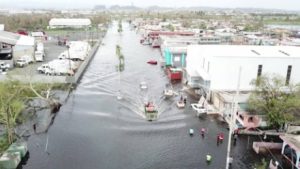

This is so similar to the mythical imagery of the Phoenix Bird – which depicts that – rather than trying to repair – at times we just need to let it burn … and then re-build from the ashes. This Phoenix mythology is no fiction; this is our reality because of the prevalence of hurricanes, earthquakes and believe it or not, volcanoes in our region.
It is what it is.
This is the continuation of the June 2020 Teaching Series from the movement behind the 2013 book Go Lean…Caribbean; this is entry 3 of 6. This movement presents a Teaching Series every month on a subject that is germane to Caribbean life. Our focus this month is on Rising from the Ashes. The constant threat of destruction and re-birth is our reality. We need to have the eco-systems for turn-arounds and reboots ready at all times.
The full catalog for this month’s series is listed as follows:
- Rising from the Ashes – The Phoenix rises from the Pandemic
- Rising from the Ashes – One person – Dead or Alive – can make a difference
- Rising from the Ashes – Natural Disasters – The Price of Paradise – ENCORE
- Rising from the Ashes – Political Revolutions – Calling Balls and Strikes
- Rising from the Ashes – War – “What is it good for?”
- Rising from the Ashes – Wrong Ethos could also rise – Cautionary tale of patriotic German Jews
The theme of the constant threat to our society have been published in many previous Go Lean blog-commentaries; in fact that prior commentary related this title: the Curse of the Enriquillo Faultline. It is only apropos to Encore that one, from January 29, here and now:
—————-
Go Lean Commentary – Cursed in Paradise – ‘Enriquillo’ Fault-line
The Caribbean is the “greatest address on the planet … “
We have said this repeatedly; the Creator has blessed this region with such beauty.
Yet, we must confess, considering a religious argument: “The Gods must be crazy” … putting such a beautiful place in the middle of a dangerous Earthquake Fault-line. This refers to the Enriquillo Fault-line across the Greater Antilles in the Caribbean archipelago – see Photo here:
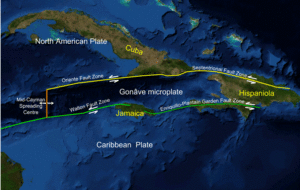
This is not just a theory; this is actuality. We have this news headline now: “7.7 Earthquake north of Jamaica”. So, crediting Godly devotion again, maybe the earthquake activity is some kind of Divine Retribution?
Retribution of what?
Well, just like the Curse of Montezuma or Curse of the Bambino, there were some egregious atrocities that maybe had to be prosecuted-reconciled-remediated for justice from some higher authority (God). Therefore, the thesis is that there is a “curse on this landmass for retribution against the ‘powers that be’ for the inflictions against the indigenous people and their leader Enriquillo”. See those details here on the Enriquillo namesake and the encyclopedic reference of the Fault-line in the Appendix below:
Reference: Enriquillo
Good relations between Christopher Columbus and the indigenous Taíno of the large island Columbus called Hispaniola did not last more than a few days. The Taínos were forced into terrible conditions as laborers in gold mining operations, badly housed in the mountains, poorly fed, extremely overworked, and forced to live in close quarters with the Spaniards.[5] Additionally, due to taking men away from the villages, the cycle of food production was disrupted, causing widespread malnutrition.[5] This malnutrition further aided the Taínos’ vulnerability to deadly new types of diseases introduced by the foreigners.[5] After Columbus tortured and killed many in his quest for gold, he turned to slavery and sugar cane plantations as a way to profit from his voyages.
Several revolts followed in the first half of the 16th century, the most famous began in 1519. Enriquillo, one of the few remaining caciques, or indigenous chiefs, started the revolt with a large number of Taínos from the mountain range of Bahoruco. The Tainos were able to continue the rebellion because of their better knowledge of the region.[6] As the Spaniards were not able to control the rebellion, a treaty was signed granting to the Native population among others the right of Freedom and of Possession. It had little consequences, however, as by this time the Native population was rapidly declining due to European diseases.
Enriquillo, also known as “Enrique” by the Spaniards, was a Taíno cacique [(Tribal Chief)] who rebelled against the Spaniards between 1519 and 1533. Enriquillo’s rebellion is the best known rebellion of the early Caribbean period. He is also considered a hero in the modern day Dominican Republic and Haiti for his resistance in favor of the indigenous peoples.[1] Dominican friar Bartolome de Las Casas, who documented and rallied against Spanish abuse of the indigenous, wrote sympathetically of Enriquillo.[2]
His father, his aunt Anacaona, and eighty other regional chieftains were killed by Nicolás de Ovando while attending supposed “peace talks” with the Spanish in Jaragua. During the talks, Spanish soldiers ambushed the chieftains, also known as caciques, set the meeting house on fire, and then proceeded to kill anyone who fled the flames (causing his father’s death). Enriquillo, an orphan, was later raised in a Santo Domingo monastery and given the name of “Enrico” [3]. One of his mentors was Bartolomé de Las Casas. De Las Casas was a Spanish Roman Catholic Priest focused on the rights of Native Americans. [4]
Enriquillo also had a wife, called Mencía, later with the noble title Doña due to Enriquillo’s high standing and relations with the Spaniards. She was raped by a Spaniard named Valenzuela. When Enriquillo tried to take the issue to the Spanish courts, nothing could be done, since it was Doña Mencia’s word against the Spaniard’s word. This, according to some writers, was the tipping point for Enriquillo which led to his revolt in the Bahoruco mountains.
Source: Retrieved January 29, 2020 from: https://en.wikipedia.org/wiki/Enriquillo
Theory, thesis, religious inference – Yada Yada!
It is what it is – these earthquakes are real! We must simply prepare. This is quest of the movement behind the 2013 book Go Lean…Caribbean; the book stated (Page 23):
c-7. “Crap” Happens
Economic security is tied to the community quest to reboot the Caribbean region to ensure a better place to live, work and play. To ensure economic security, the economic engines must be protected to ensure their continuous operations despite natural or man-made deterrents. Bad things do happen to good people, so we cannot be caught unprepared. We must institute the process and provisions to respond, react, restore and recover. Any and everyone may need to dial “911”.The Caribbean community ethos is to consider the facts and realities:
- climate change cannot be dismissed – tropical storms are now more common and more ferocious;
- there are two geologic fault-lines that run through the Caribbean region;
- there is an active volcano on Montserrat.
It is not a matter of “if” but “when” emergencies will strike. The security principle therefore is to be prepared for all incidents, big and small, that involve all aspects of society: islands, institutions, companies, families and individuals.
As related in the foregoing headline – 7.7 Earthquake north of Jamaica – this is of serious concern. This seismic activity had its epicenter in the middle of the Caribbean Sea, away from land, but spurring the threat of a tsunami in one place after another. Everyone is On Alert. See this actuality depicted in this news story here:
Title: Mag 7.7 quake hits between Cuba and Jamaica, but no injuries
Sub-title: A powerful magnitude 7.7 earthquake has struck in the Caribbean Sea between Jamaica and eastern Cuba
By: Michael Weissenstein, Associated Press
HAVANA – A powerful magnitude 7.7 earthquake struck in the Caribbean Sea between Jamaica and eastern Cuba on Tuesday, shaking a vast area from Mexico to Florida and beyond, but there were no reports of casualties or heavy damage.The quake was centered 139 kilometers (86 miles) northwest of Montego Bay, Jamaica, and 140 kilometers (87 miles) west-southwest of Niquero, Cuba, according to the U.S. Geological Survey. It hit at 2:10 p.m. (1910 GMT) and the epicenter was a relatively shallow 10 kilometers (6 miles) beneath the surface.
Dr. Enrique Arango Arias, head of Cuba’s National Seismological Service, told state media that there had been no serious damage or injuries reported.
Gov. Carlos Joaquín González of Mexico’s Quintana Roo, which is home to Cancun, Tulum and other popular beach resorts, said the earthquake was felt in multiple parts of the low-lying Caribbean state but there were no early reports of damage or injuries.
The Pacific Tsunami Warning Center initially warned that the quake could generate waves 1 to 3 feet above normal in Cuba, Jamaica, the Cayman Islands, Honduras, Mexico and Belize, but issued a later message saying the danger had passed.
The initial tremor was followed by a series of strong aftershocks, including one measured at magnitude 6.1.
The quake was felt strongly in Santiago, the largest city in eastern Cuba, said Belkis Guerrero, who works in a Roman Catholic cultural center in the center of Santiago
“We were all sitting and we felt the chairs move,” she said. “We heard the noise of everything moving around.”
She said there was no apparent damage in the heart of the colonial city.
“It felt very strong but it doesn’t look like anything happened,’’ she told The Associated Press.
It was also felt a little farther east at the U.S. Navy base at Guantanamo Bay, Cuba, on the southeastern coast of the island. There were no immediate reports of injuries or damages, said J. Overton, a spokesman for the installation, which has a total population of about 6,000 people.
Several South Florida buildings were evacuated as a precaution, according to city of Miami and Miami-Dade County officials. No injuries or road closures were reported. No shaking was felt at the Hard Rock stadium in Miami Gardens, which will host the Super Bowl on Sunday.
The quake also hit the Cayman Islands, leaving cracked roads and what appeared to be sewage spilling from cracked mains. There were no immediate reports of deaths, injuries or more severe damage, said Kevin Morales, editor-in-chief of the Cayman Compass newspaper.
The islands experience so few earthquakes that newsroom staff were puzzled when it hit, he said.
“It was just like a big dump truck was rolling past,” Morales said. “Then it continued and got more intense.”
Dr. Stenette Davis, a psychiatrist at a Cayman Islands hospital, said she saw manhole covers blown off by the force of the quake, and sewage exploding into the street, but no more serious damage.
Claude Diedrick, 71, who owns a fencing business in Montego Bay, said he was sitting in his vehicle reading when the earth began to sway.
“It felt to me like I was on a bridge and like there were two or three heavy trucks and the bridge was rocking but there were no trucks,” he said.
He said he had seen no damage around his home in northern Jamaica.
Mexico’s National Seismological Service reported that the quake was felt in five states including as far away as Veracruz, on the country’s Gulf Coast.
————— Associated Press writer Kate Chappell in Kingston, Jamaica, contributed to this report.
Source: Posted & Retrieved January 28, 2020 from: https://abcnews.go.com/International/wireStory/powerful-earthquake-hits-cuba-jamaica-68592066
Considering the geological science of earthquakes, we know there are main shocks and after-shocks. Some geologists also credit pre-shocks, where minor seismic activities come as a prelude to main shocks. See more on the “Science of Earthquakes” in this VIDEO here:
VIDEO – What is an earthquake? – https://abcn.ws/2M4FtKM
An earthquake is caused when two blocks of earth slip past each other on a fault plane, according to the US Geological Survey.
The Richter Scale is exponential between the numbers 3 and 8, so 7.7 is very strong … and dangerous.
There truly have been pre-shocks leading up to this “7.7 Earthquake north of Jamaica”; consider this related story:
2020 Puerto Rico Earthquakes
At the end of December 2019 and in early January 2020, the southwestern part of the island of Puerto Rico was struck by an earthquake swarm,[1] including six that were of magnitude 5 or greater.[2] The largest and most damaging of this sequence occurred on January 7 at 04:24 AST (08:24 UTC) and had a magnitude of 6.4 Mw and a maximum felt intensity of VII (Very strong) on the Modified Mercalli intensity scale.[3] At least one person was killed and several others were injured.[4][5]A 5.8 Mw earthquake the previous day caused the destruction of a natural arch, a tourist attraction at Punta Ventana in Guayanilla.[6] A 5.9 Mw aftershock on Saturday, January 11, damaged many structures, including several historical buildings as well as modern high-rises in the city of Ponce.[7]
Power was lost Island-wide immediately after the quake, and was increasingly restored over a period of a week. Damage to homes was extensive and, by 14 January, more than 8,000 people were homeless and camping outdoors in various types of shelters, with 40,000 others camping outside their homes, just in the city of Ponce alone.[8]
Needless to say, the Enriquillo Fault-line has been very active in these recent days. To all Caribbean stakeholders, we urge:
Be afraid; be very afraid.
This is the same fault-line that devastated Haiti in January 2010 – almost 10 years exactly – plus many other times in the past. The Go Lean movement and organization originated in response to that unmitigated disaster. See this salient reference to it in the Go Lean book (Page 115):
| The Bottom Line on the Haiti’s Earthquakes
As of 2010, the following major earthquakes have been recorded in Haiti, along the Enriquillo or Septentrional-Oriente faults:
|
Based on this observation, one can hypothesize the theory of: “An accursed land, indeed”!
Yet still, the Go Lean promoters assert – in a previous blog-commentary – that we do not want our people abandoning home, seeking refuge elsewhere. We can reform and transform the homeland to better prepare for the eventualities of Mother Nature. See that message here:
The movement behind the book Go Lean…Caribbean is standing up, stepping up and speaking up:
- “… Here I am, send me” – The Bible; Isaiah 6:8 (New International Version: Then I heard the voice of the Lord saying, “Whom shall I send? And who will go for us?” And I said, “Here am I. Send me!”)
The basic premise of the economic analysis in the Go Lean book is that we need our population to stay, remain and return to the Caribbean; the more people we have in the market the better.
What is it that we can do to reform and transform for earthquakes? The Go Lean book relates (Page 76), in introducing the Caribbean Union Trade Federation (CU) as a technocracy to plan and respond to natural disasters. See this excerpt here:
B4 – Emergency Management
This area is perhaps one of the most important functions of the CU. The Emergency Management Department will coordinate the planning, response, rebuilding and recovery before, during and after natural disasters and other emergency events. This is the risk management arm of the CU Trade Federation. As such, the scope of Emergency Management will also include education, mentoring, monitoring, mitigation, licensing and coordination of all volunteer activities.The scope of this department also includes a number of proactive initiatives: (1). establishing and administering volunteer fire/rescue departments for sparsely populated areas; and (2). installing/maintaining emergency notification systems. In ancient cultures there is the practice of ringing a bell, a church bell or one at the town square, to alert the community of an imminent threat. A lot of western democracies embrace the same tactic with more modern technologies, such as audible alarms/sirens.
The imminent threat includes tornado landfall warning, tsunami, mudslide, volcano eruption, etc. The CU will extend this practice further by installing a standard audible siren system for any/all emergency events. A great lesson learned from the US Midwestern city of Omaha-Nebraska is the schedule for siren testing, the first Wednesday every month at 11:00am.
A best practice for Emergency Management is electronic notification. This includes an Emergency Broadcasting/Alert system for TV and radio. Plus now the latest advance is the use of telephone/internet and contact center technologies, allowing features like Reverse 911 – automated/robo calls to every active phone in a location – and text message blasting to every cell phone. With the embrace of www.myCaribbean.gov, the CU can target an alert message to any & every email address, social media screen names, or provide Pop-up Screens for internet browsing sessions for all IP addresses in the strike area.
As such, the scope of natural emergencies covered by this agency will cover more than hurricanes. As such, earthquakes, tsunamis, volcanoes, flooding, forest fires, and droughts will also be monitored, managed and responded to. (These have all been experienced recently in the Caribbean).
Emergencies also include the man-made variety as in industrial (oil spills, factory accidents, chemical spills), explosions, terroristic attacks and prison riots. The purpose of the Trade Federation is to enhance the economic engines of the region. While the #1 economic driver in the region is tourism, any poorly managed episode of “man-made” emergencies will have devastating effects on tourist bookings. Therefore, the CU must respond quickly, forcefully and professionally to contain the physical and image damage that can occur from these incidents.
Though not exclusive, this agency will coordinate its specialized services, skill-sets and occupations like Paramedic, EMT, Search-and-Rescue, Canine (K-9) with other governing (law enforcement) entities. Regional training will therefore be coordinated, licensed, and certified by this CU Emergency Management Department.
This Emergency Management agency will also coordinate the training and management of animal responders, in conjunction with the other federal agencies of Justice, Agriculture, Interior (Parks). The animals will include bomb sniffing dogs, cadaver dogs, drug dogs and mounted police horses.
There is also an economic/financial scope for this department. As the effort for a comprehensive property-casualty fund to cover the entire Caribbean region will also be coordinated by this agency. The classic solution is a large pool of premium payers and claims filed by the affected area. Beyond this model, there are also advanced products like re-issuance side-cars for market assimilation. The public can then invest and profit from the threat/realization of regional risks. This derivative product is a bet, a gamble, but in the end, the result is an insurance fund of last resort, much like the Joint Underwriters Agency (JUA) in Florida.
The Go Lean movement has addressed the subject of Earthquakes and Emergency Management on many occasions. See this sample of the many previous blog-commentaries here:
| https://goleancaribbean.com/blog/?p=18182 | Disaster Relief: Helping, Not Hurting |
| https://goleancaribbean.com/blog/?p=17373 | A Marshall Plan for Haiti – Finally |
| https://goleancaribbean.com/blog/?p=15996 | Good Governance: Stepping Up in an Emergency |
| https://goleancaribbean.com/blog/?p=15267 | Industrial Reboot – Prefab (Earthquake Tolerant) Housing 101 |
| https://goleancaribbean.com/blog/?p=13974 | The Spoken and Unspoken on Haiti |
| https://goleancaribbean.com/blog/?p=2614 | Modeling the ‘Great ShakeOut’ Earthquake Drill |
| https://goleancaribbean.com/blog/?p=87 | 6.5M Earthquake Shakes Eastern Caribbean |
“Here I am send me”? That sounds similar to the mantra “To Change the World, Start With Me”!
While not subscribing to any religious dogma, “it is what it is”, the End of Days Prophecies in the Bible seem to have validity – Matthew 24: 3, 7:
3 What will be the sign … of the Last Days?
7 Nation will rise against nation, and kingdom against kingdom. There will be famines and earthquakes in various places.
So we must simply be more resilient and responsive to earthquakes – and tsunamis. There is no reason to expect any less activity.
So let’s get busy … let’s prepare our homes, families, communities, nations and region for the eventuality of this Enriquillo Fault-line (and other geologic weak-points that are undeniable in our homeland).
Most importantly, let’s lean-in to this Go Lean roadmap – this is the Way Forward for Caribbean Disaster Preparation and Response – and finally make our region, each of the 30 Caribbean member-states, a better place to live, work and play. 🙂
About the Book
The book Go Lean…Caribbean serves as a roadmap for the introduction and implementation of the technocratic Caribbean Union Trade Federation (CU), for the elevation of Caribbean society – for all member-states. This CU/Go Lean roadmap has these 3 prime directives:
- Optimization of the economic engines in order to grow the regional economy to $800 Billion & create 2.2 million new jobs.
- Establishment of a security apparatus to ensure public safety and protect the resultant economic engines.
- Improve Caribbean governance to support these engines, including a separation-of-powers between the member-states and CU federal agencies.
The Go Lean book provides 370-pages of turn-by-turn instructions on “how” to adopt new community ethos, plus the strategies, tactics, implementations and advocacies to execute so as to reboot, reform and transform the societal engines of Caribbean society.
Download the free e-Book of Go Lean … Caribbean – now!
Who We Are
The movement behind the Go Lean book – a non-partisan, apolitical, religiously-neutral Community Development Foundation chartered for the purpose of empowering and re-booting economic engines – stresses that reforming and transforming the Caribbean societal engines must be a regional pursuit. This was an early motivation for the roadmap, as pronounced in the opening Declaration of Interdependence (Pages 11 – 13):
ii. Whereas the natural formation of the landmass for our lands constitutes some extreme seismic activity, it is our responsibility and ours alone to provide, protect and promote our society to coexist, prepare and recover from the realities of nature’s occurrences.
xi. Whereas all men are entitled to the benefits of good governance in a free society, “new guards” must be enacted to dissuade the emergence of incompetence, corruption, nepotism and cronyism at the peril of the people’s best interest. The Federation must guarantee the executions of a social contract between government and the governed.
xvi. Whereas security of our homeland is inextricably linked to prosperity of the homeland, the economic and security interest of the region needs to be aligned under the same governance. Since economic crimes … can imperil the functioning of the wheels of commerce for all the citizenry, the ccidence of this Federation must equip the security apparatus with the tools and techniques for predictive and proactive interdictions.
xix. Whereas our legacy in recent times is one of societal abandonment, it is imperative that incentives and encouragement be put in place to first dissuade the human flight, and then entice and welcome the return of our Diaspora back to our shores. This repatriation should be effected with the appropriate guards so as not to imperil the lives and securities of the repatriated citizens or the communities they inhabit. …
xxiv. Whereas a free market economy can be induced and spurred for continuous progress, the Federation must install the controls to better manage aspects of the economy: jobs, inflation, savings rate, investments and other economic principles. Thereby attracting direct foreign investment because of the stability and vibrancy of our economy.
Sign the petition to lean-in for this roadmap for the Caribbean Union Trade Federation.
——————
Appendix – Enriquillo–Plantain Garden Fault Zone
The Enriquillo–Plantain Garden fault zone (EPGFZ or EPGZ) is a system of active coaxial left lateral-moving strike slip faults which runs along the southern side of the island of Hispaniola, where Haiti and the Dominican Republic are located.[1] The EPGFZ is named for Lake Enriquillo in the Dominican Republic where the fault zone emerges, and extends across the southern portion of Hispaniola through the Caribbean to the region of the Plantain Garden River in Jamaica.
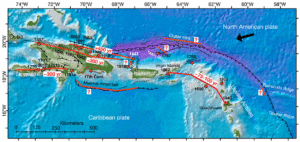
Geology
The EPGFZ shares approximately half of the relative motion between the North American and Caribbean tectonic plates with the Septentrional-Oriente fault zone which runs along the northern side of Hispaniola. Both faults merge into the Cayman Trench to the west. The fault accommodates about 20.6±1.66 millimeters of lateral motion per year (mm/yr).[2] Additionally, a component of compression is present as the North American Plate pushes toward the southwest. This results in vertical deformation manifest in the mountainous terrain of Hispaniola. Some researchers believe that the EPGFZ and the Septentrional-Orient fault zone bound a microplate, dubbed the Gonâve Microplate, a 190,000 km2 (73,000 sq mi) area of the northern Caribbean Plate that is in the process of shearing off the Caribbean Plate and accreting to the North America Plate.[3]
[Prominent] Earthquakes
- A magnitude 7.5 earthquake struck southeastern coast of Jamaica in 1692, almost destroying Port Royal
- An earthquake struck along the southern coast of Hispaniola in 1751.[4]
- A magnitude 7.5 earthquake struck Port-au-Prince in 1770.
- The 1907 Kingston earthquake damaged every building in Kingston, Jamaica.[1]
- A magnitude 7.0 earthquake occurred near Port-au-Prince, Haiti as a result of seismic activity along blind thrust faults associated with this fault zone on January 12, 2010.[5][6]
Other historical large earthquakes in 1860, 1761, 1684, 1673, and 1618 are also likely attributed to the EPGFZ, though none of these have been confirmed in the field as associated with this fault.[7]
Source: Retrieved January 29, 2020 from: https://en.wikipedia.org/wiki/Enriquillo%E2%80%93Plantain_Garden_fault_zone
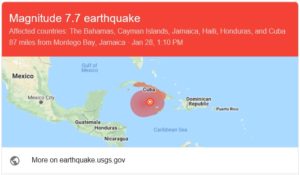

 Thanks to the Coronavirus – COVID-19 crisis, the world is shuttered, sheltering-in-place and reflecting …
Thanks to the Coronavirus – COVID-19 crisis, the world is shuttered, sheltering-in-place and reflecting …
 George Floyd was not famous. He was killed not in the capital of the United States, but on a street corner in its 46th-largest city. Yet in death he has suddenly become the keystone of a movement that has seized all of America. Still more remarkably, he has inspired protests abroad, from Brazil to Indonesia, and France to Australia. His legacy is the rich promise of social reform. It is too precious to waste.
George Floyd was not famous. He was killed not in the capital of the United States, but on a street corner in its 46th-largest city. Yet in death he has suddenly become the keystone of a movement that has seized all of America. Still more remarkably, he has inspired protests abroad, from Brazil to Indonesia, and France to Australia. His legacy is the rich promise of social reform. It is too precious to waste.

 George Perry Floyd Jr. (October 14, 1973 – May 25, 2020) was an African-American man
George Perry Floyd Jr. (October 14, 1973 – May 25, 2020) was an African-American man  In
In 
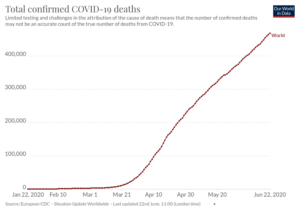
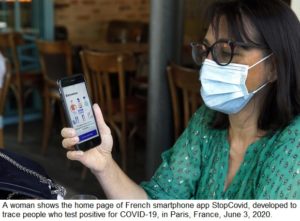 Paris — France has rolled out its “StopCovid” contact tracing app as it continues easing restrictions on normal life aimed at curtailing the
Paris — France has rolled out its “StopCovid” contact tracing app as it continues easing restrictions on normal life aimed at curtailing the  So you love your community, but does the community love you back?!
So you love your community, but does the community love you back?! For weeks, Kelly Stanton wasn’t sleeping. She lay in bed gripped with the anxiety of having to go to work at a Washington, D.C.-area hospital not knowing whether she might bring home the coronavirus to her husband and their three children.
For weeks, Kelly Stanton wasn’t sleeping. She lay in bed gripped with the anxiety of having to go to work at a Washington, D.C.-area hospital not knowing whether she might bring home the coronavirus to her husband and their three children.


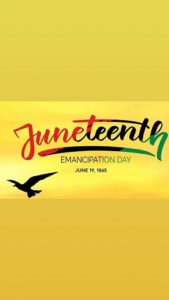 Happy Juneteenth!
Happy Juneteenth!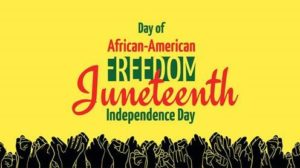
 A common misconception is that this day marks the end of slavery in the United States. Although this day marks the emancipation of all slaves in the
A common misconception is that this day marks the end of slavery in the United States. Although this day marks the emancipation of all slaves in the  Why is leadership so important?
Why is leadership so important?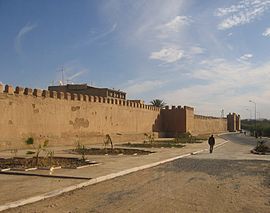


 Those countries are the exact destinations for many of the Caribbean Diaspora. The Black-and-Brown of the Caribbean had fled their homeland in search of refuge but instead have found a more
Those countries are the exact destinations for many of the Caribbean Diaspora. The Black-and-Brown of the Caribbean had fled their homeland in search of refuge but instead have found a more  That last one – pandemics – is all the rage right now. There are no Ands, Ifs or Buts, with the current Coronavirus-COVID-19 crisis, Good Leadership would do a better job of managing such a crisis. We also have to contend with policing the Police.
That last one – pandemics – is all the rage right now. There are no Ands, Ifs or Buts, with the current Coronavirus-COVID-19 crisis, Good Leadership would do a better job of managing such a crisis. We also have to contend with policing the Police. Let me start, as the Governor, by welcoming you. For those listening to us on the radio we are in the Premier’s Office and I’m joined by the Premier and the recently appointed Commissioner of Police. We also have with us the Deputy Governor, Deputy Premier, and the Executive Leadership team of the Police Force.
Let me start, as the Governor, by welcoming you. For those listening to us on the radio we are in the Premier’s Office and I’m joined by the Premier and the recently appointed Commissioner of Police. We also have with us the Deputy Governor, Deputy Premier, and the Executive Leadership team of the Police Force. The important march on Sunday, led by our church leaders, supported by the Honourable Premier and Honourable Leader of the Opposition, which placed an emphasis on society and community, was an excellent example that these leaders, religious and secular, understand that.
The important march on Sunday, led by our church leaders, supported by the Honourable Premier and Honourable Leader of the Opposition, which placed an emphasis on society and community, was an excellent example that these leaders, religious and secular, understand that.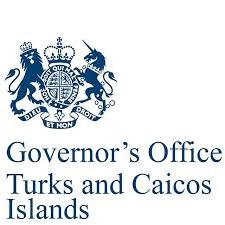 Finally TCI: we are bigger, we are better and we are stronger than allowing a small number of bad men, to bring fear into our amazing country. The stoicism we show in times of natural disaster is admirable; let’s show it now. As you hear the Commissioner and Premier speak let’s all of us assume ‘agency’, not just in observing the problem, but being a part of the wider societal solution.
Finally TCI: we are bigger, we are better and we are stronger than allowing a small number of bad men, to bring fear into our amazing country. The stoicism we show in times of natural disaster is admirable; let’s show it now. As you hear the Commissioner and Premier speak let’s all of us assume ‘agency’, not just in observing the problem, but being a part of the wider societal solution.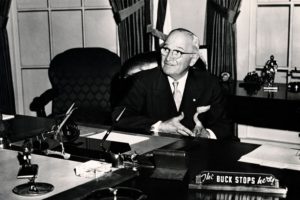 In addition to the country presenting itself as a model democracy, the Chief Government official in the US, the President of the United States (POTUS) is considered the “Leader of the Free World” – this has been the association ever since the start of the Cold War (early 1950’s)..
In addition to the country presenting itself as a model democracy, the Chief Government official in the US, the President of the United States (POTUS) is considered the “Leader of the Free World” – this has been the association ever since the start of the Cold War (early 1950’s)..
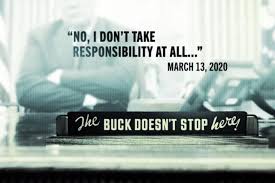
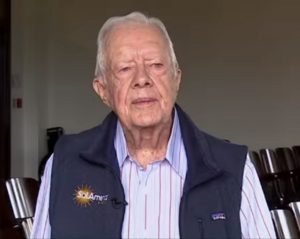 Former President Carter’s vision for clean, renewable energy proved to be far ahead of his time.
Former President Carter’s vision for clean, renewable energy proved to be far ahead of his time. Carter’s continued activism in support of renewables showcases the importance of local and individual efforts to reduce humanity’s reliance on fossil fuels, even in the
Carter’s continued activism in support of renewables showcases the importance of local and individual efforts to reduce humanity’s reliance on fossil fuels, even in the 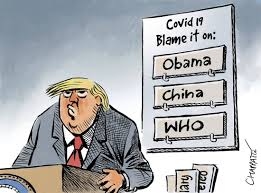
 That is just the standard. Global Standard, that is! It assumes that moral code must be equally applied to all stakeholders. Any violation of this standard is considered hypocrisy, of which the end result is a total disrespect for all standards, rules and/or law-and-order.
That is just the standard. Global Standard, that is! It assumes that moral code must be equally applied to all stakeholders. Any violation of this standard is considered hypocrisy, of which the end result is a total disrespect for all standards, rules and/or law-and-order. This is familiar in the European rationalization. In my school days, there was a system of “Merits and Demerits”:
This is familiar in the European rationalization. In my school days, there was a system of “Merits and Demerits”: The days of the Pirates of the Caribbean provides a glimpse for today’s pandemic crisis; the blatant hypocrisy of the times made societal progress difficult. There are no Ands, Ifs or Buts; today, we need Good Leadership – among our political, corporate, religious and civic stakeholders – to survive and thrive as a society. We need to heed, adhere and comply with Good Leadership; we do not need blatant examples of hypocrisy cancelling out the Law-and-Order principles. We needed this hypocrisy-free climate before this COVID-19 pandemic; we need it now in the throes of this crisis – think quarantines, stay-at-home orders, wear masks orders, and isolation orders – and we will need it afterwards.
The days of the Pirates of the Caribbean provides a glimpse for today’s pandemic crisis; the blatant hypocrisy of the times made societal progress difficult. There are no Ands, Ifs or Buts; today, we need Good Leadership – among our political, corporate, religious and civic stakeholders – to survive and thrive as a society. We need to heed, adhere and comply with Good Leadership; we do not need blatant examples of hypocrisy cancelling out the Law-and-Order principles. We needed this hypocrisy-free climate before this COVID-19 pandemic; we need it now in the throes of this crisis – think quarantines, stay-at-home orders, wear masks orders, and isolation orders – and we will need it afterwards. Characters: Captain Flint, Long John Silver, William “Blackbeard” Teach, Anne Bonny, Governor Woodes Rogers,
Characters: Captain Flint, Long John Silver, William “Blackbeard” Teach, Anne Bonny, Governor Woodes Rogers, 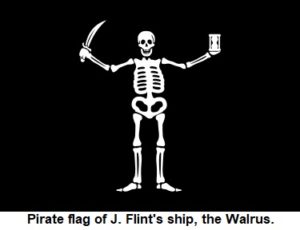 The distinction between a privateer and a pirate has always been vague beyond the licensing Letters of Marque. Without the letters, the parties were considered pirates; of which many frequented the Caribbean region. This industry employed many unemployed seafarers as a way to make ends meet, but became increasingly damaging to the region’s economic and commercial prospects.
The distinction between a privateer and a pirate has always been vague beyond the licensing Letters of Marque. Without the letters, the parties were considered pirates; of which many frequented the Caribbean region. This industry employed many unemployed seafarers as a way to make ends meet, but became increasingly damaging to the region’s economic and commercial prospects.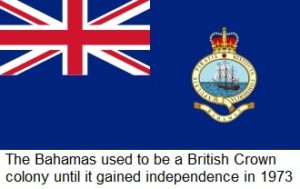 Appendix B – Bahama Islands History; Arrival of the English
Appendix B – Bahama Islands History; Arrival of the English
 Good Project Management = Good Leadership.
Good Project Management = Good Leadership. That is right; the typewriter was only used by secretaries, journalists and/or authors; (think Murder She Wrote
That is right; the typewriter was only used by secretaries, journalists and/or authors; (think Murder She Wrote  The Scaled Agile Framework (SAFe) is a set of organization and workflow patterns intended to guide enterprises in
The Scaled Agile Framework (SAFe) is a set of organization and workflow patterns intended to guide enterprises in  The primary reference for the scaled agile framework was originally the development of a big picture view of how work flowed from
The primary reference for the scaled agile framework was originally the development of a big picture view of how work flowed from  “It is good to be lean”.
“It is good to be lean”.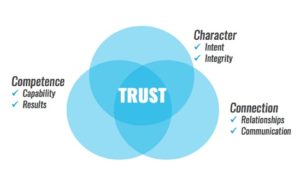 Of course, every sane person desires to be around great friends, great family and maybe even work for a great company. In fact, then Presidential Candidate Donald Trump got support in the United States in 2015/2016 with the promise of “Making America Great Again”.
Of course, every sane person desires to be around great friends, great family and maybe even work for a great company. In fact, then Presidential Candidate Donald Trump got support in the United States in 2015/2016 with the promise of “Making America Great Again”. (Source:
(Source: 

